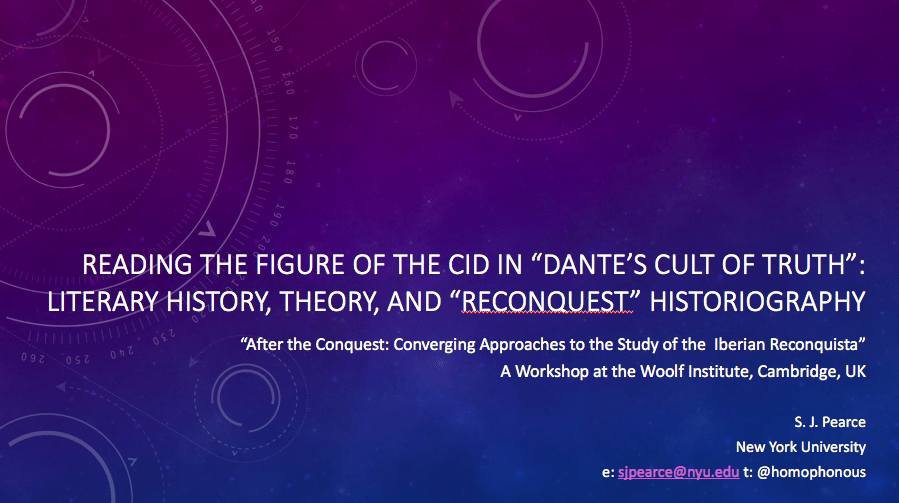This is the paper that I am slated to give this afternoon at the workshop “After the Conquest: Converging Approaches to the Study of the Iberian Reconquista” at the Woolf Institute, Cambridge. Writing the paper allowed me to begin to think through a new chapter in my current book project; perhaps predictably, by the time I was finished writing the conference paper I had gotten my argument just to the point from which I need to start writing the book chapter version. Even as a first draft of a first draft, this is truncated; I had to cut fully a thousand words from my initial version of the paper in order to keep to time — one of the things I’m looking forward to about this workshop is that we’re giving short papers and each session is followed by a roundtable. It seems like it will be a very productive format. The sets of asterisks mark where I did the most butchery — I’ve saved those passages to put back when I begin to (re)construct the chapter. The state of medieval studies online these days is such that I’d simply say: If you read this and are inclined to shout at me for not including enough examples, for not having a more fully developed theoretical framework, or not having cited the work of your favorite theorist or scholar or medieval chronicler, please consider the possibility that it was there in the extended version and will again be there in the book. (I, myself, was particularly unhappy about consigning the work of Nadia Altschul, Simon Barton, and Ibn Bassam to the file called “cut bits of the cambridge reconquest paper.docx.” I don’t have time before the workshop begins but I’ll add some bibliography later to give a sense of where I’m going with all of this in terms of its situation within the field.) This is a paper that really sets out a methodology rather than offering a full display of what it can do. That will come in the parts of the conference that are invisible to the internet and in the much longer project of book-writing. For that, stay tuned.

